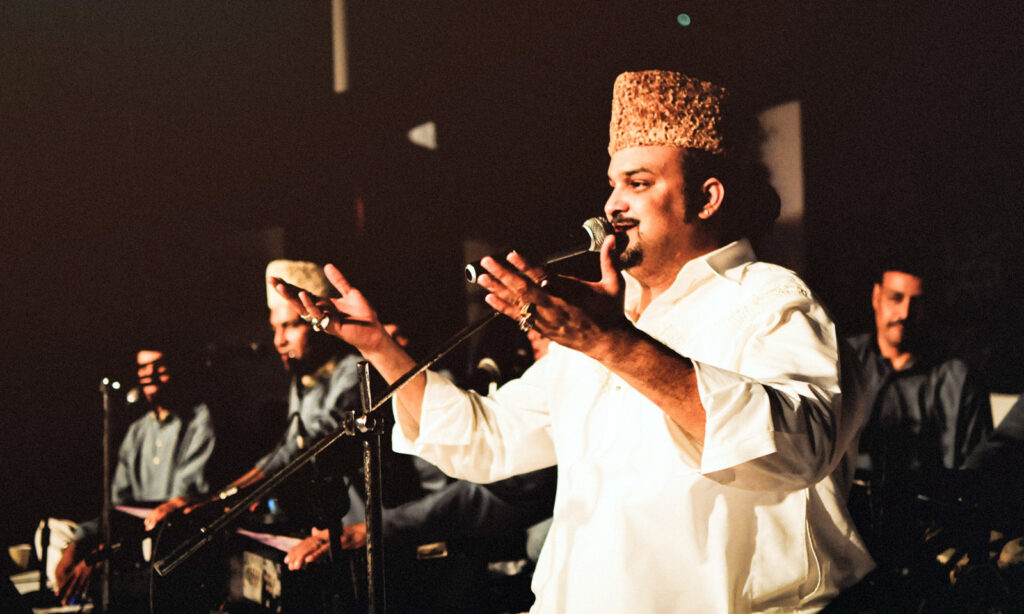
Temperatures were soaring in the middle of Ramzan, but the crowd that had gathered for Amjad Farid Sabri’s funeral in Karachi’s Liaquatabad area on June 23, 2016, swelled up to tens of thousands. Mourners thronged around the ambulance carrying his body, showering it with rose petals. Businesses in Liaquatabad – his birthplace and also his final resting place – as well as in the neighbouring Nazimabad area remained closed that day.
The mourners grieved the loss of a friend, a neighbour, and a national icon brutally gunned down a day earlier. Sabri was travelling by car from his home to a television studio when two gunmen on a motorcycle pulled up alongside his vehicle and opened fire. Hit by three bullets, he died before reaching the hospital.
A few hours earlier, he was live on national television reciting a prayer during the pre-dawn transmission. “When I am alone and afraid in my grave, come and help me, O Prophet of God / Light my grave with your presence,” he sang and started weeping. Others present on set wept along with him.
One of the most recognisable faces of qawwali in recent years, Sabri was buried next to the graves of his father Ghulam Farid Sabri and uncle Maqbool Ahmed Sabri — the duo remembered as the legendary Sabri Brothers. Born in what is now the Indian state of Haryana and belonging to the Sabriya branch of the Chishti Sufi order, they came to Pakistan after Partition, settled in Karachi and became associated with the shrine of Baba Farid Ganj Shakar in Pakpattan town of Punjab. They went on to become the first Pakistani qawwali troupe to enjoy a large fan following both within the country and abroad.
The Sabri Brothers infused qawwali with glamour and created tunes and compositions that helped this traditional Sufi genre to break free of its shrine-centred spirituality to become a part of popular culture in the 1960s and the 1970s. Those politically and socially pulsating years provided them with a perfect backdrop for their bold experimentation with qawwali — using verses written by contemporary poets rather than those by Sufi luminaries such as Ameer Khusrau, mixing classical devotional poetry with romantic poems in different languages and donning rock star looks with flowing locks, skewed caps and colourfully embroidered clothes.
Qawwali suddenly became cool.
This obituary was published in the Herald’s July 2016 issue. Read more here.